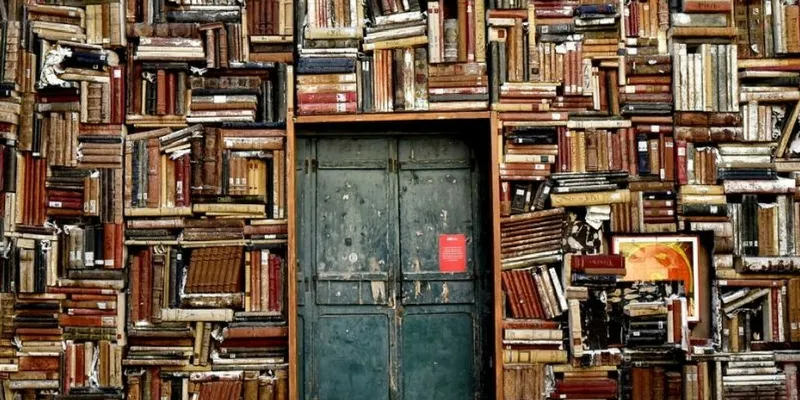Why the potential of India's 70,000+ public libraries remains untapped
A meagre total of 75 public libraries are serving the over 200 million population of Uttar Pradesh. Compare this to 4,028 public libraries in Tamil Nadu that serve its 67.8 million population and a study in contrast emerges.
To add to its woes, Uttar Pradesh spends just about Rs 22 crore on its libraries while the amount spent by states like Tamil Nadu and Karnataka run into hundreds of crores. Even from the Rs 22 crore that it spends on its public libraries, about Rs 20 crore goes into maintenance and salaries.
Sad as it may sound, the State spends just about Rs 2 crore on outreach activities and on new books.
Why such disparity in the first place?
One reason may be the delay in passing the library legislation by some states. For instance, Tamil Nadu and Karnataka passed their library legislation in 1948 and 1965, respectively, while Uttar Pradesh and Rajasthan passed their legislation in 2006; followed by Lakshadweep in 2007, Bihar in 2008, and Chhattisgarh and Arunachal Pradesh in 2009. Several states still do not have a library legislation in place.
The public libraries in States that have had their "library legislations" in place for a long time have naturally benefited over the years and are better equipped today than their counterparts.
But is that the sole reason?
Perhaps no, when you look at the range of sources from which funds are available for public libraries, and the disinterest of several states in seeking these funds.
The Raja Rammohun Roy Library Foundation (RRRLF), which is the nodal agency of the government of India to support public library services and systems, has been supporting public as well as private libraries since its inception in 1972.

Its budget runs into a thousand million rupees and it supports approximately 34,000 out of the 70,000 public libraries in India under its various schemes. The irony is that despite the availability of funds, all states do not send in proposals.
"We can only grant funds if we receive a proposal and are satisfied by it, but so many states, despite repeated letters, do not send their proposals in the first place," Arun Kumar Chakraborty, Director General, RRRLF, told IANS on the sidelines of an All Stakeholders' Meeting organised by the Indian Public Library Movement (IPLM) in the capital.
But why do many states fail to utilise available resources to boost their public libraries?
Experts say it is because the librarians and policymakers in several states are not trained in the field. They do not possess the wherewithal to improve the functioning of their libraries.
IPLM's recent meeting was attended by representatives from the Ministry of Culture (MoC) and the National Mission on Libraries (NML), RRRLF officials, IPLM partners and directors of Public Library Department/Directorate, their deputies and chief librarians, among others.
Pankaj Rag, Joint Secretary, MoC, encouraged the state governments to utilise the services and funds provided under several initiatives and also enhance their own budget for public libraries.
In his presentation on RRRLF Schemes and Fund Utilisation, Soumen Sarkar, Deputy Director, RRRLF, mentioned that due to poor fund appropriation by the State governments, they are not able to show utilisation of all the funds received from the Central government which leads to reduction in their proposed budget the next year.
The bottom line that emerges from conversations with these stakeholders is the immense potential of 70,000 public libraries in the country that is yet untapped.
Shubhangi Sharma, Executive Director, IPLM Secretariat, says that there is a need for coordinated efforts by all and support to librarians to tap into available schemes and resources from within the system -- in addition to building partnerships and alliances.
"What is required is to build capacities of the human resources available in these institutions to be able to better engage with the community, the surrounding ecosystem; to understand the changing knowledge needs and envision their role as a knowledge partner. Libraries also need to initiate new services, new programmes on the basis of emerging needs and developmental challenges which will help in increasing footfalls," Sharma said.
While movements like IPLM are working towards helping libraries to become new age knowledge institutions, a concerted effort is needed by the states to improve the condition of libraries in India.
For now, MoC and NML representatives, and the RRRLF appear more than interested in transforming the image of ill-maintained public libraries. To what extent they will succeed remains to be seen.
(In association with IANS)







